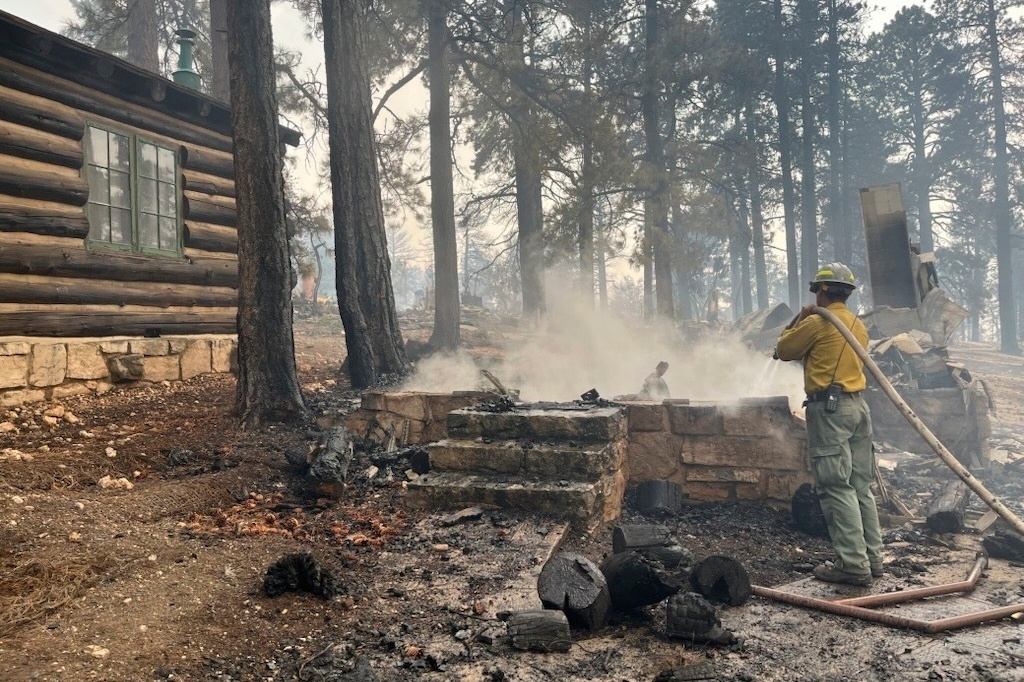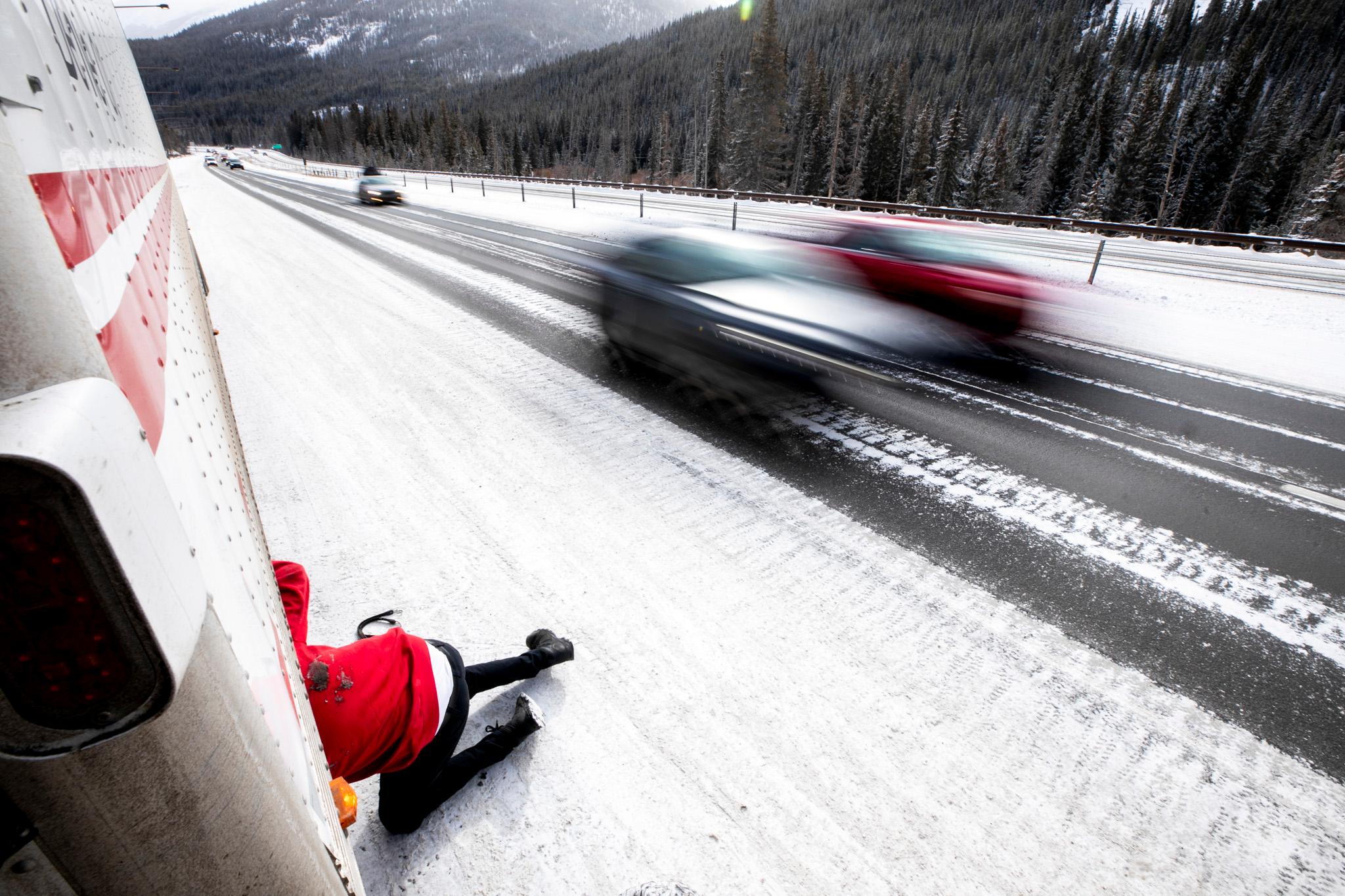
Updated at 6:20 a.m. on Wednesday, March 5, 2025
Most mornings, when Tommy Lee turns the ignition and waits while his giant, 40 ton semi-truck groans to life, his breath is still visible. He then clocks in using an electronic log on his dashboard and begins his journey up I-70 from Denver to Grand Junction.
Lee drives this route at least four days a week in the winter, hauling food to McDonald’s restaurants on the Western Slope. The trip usually falls to him because he’s the most experienced driver at his company, and no other drivers want to do it.
“If you're up [I-70] and you're not prepared, it can be an absolute nightmare for you,” Lee said. “This can be the worst drive of your life.”
Behind him, neatly folded blankets sit on top of a bunk bed, alongside a few boxes filled with supplies like bungee cords, spare winter clothes, gloves and hats. A cooler with sandwiches and snacks is tucked in nearby, and cables and phone chargers are stacked tidily in the cab of his truck.
“People kind of laugh at me… I keep all this extra stuff with me in case something happens,” he said. “I'm not going to freeze, I'm not going to starve and I'm going to be able to keep moving if the truck’s not broken down.”
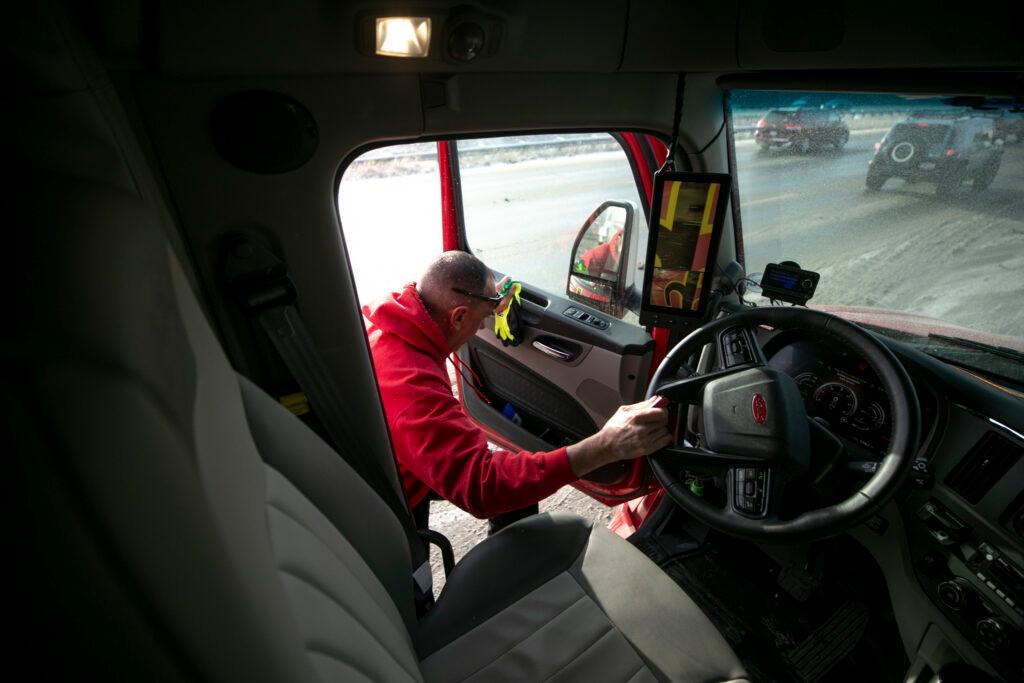
For many Coloradans, winter drives on I-70 are not fun experiences. Ski traffic, icy and treacherous roads, and multi-hour delays are all pretty typical during the winter months. But Lee and other semi-truck drivers often bear the brunt of blame when things get backed up.
From September to May, commercial semi-trucks — or CMVs — are required by law to carry tire chains on I-70. However, that hasn’t solved the traffic headaches or put an end to major crashes in stretches where timely detours are limited or nonexistent. And then there’s the issue of scofflaws.
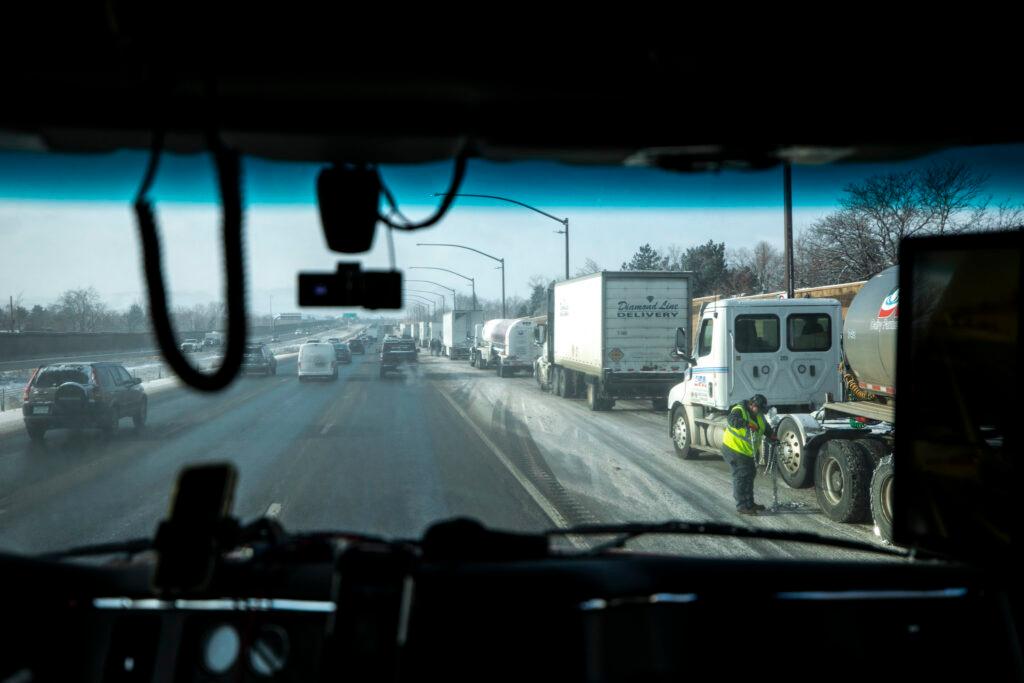
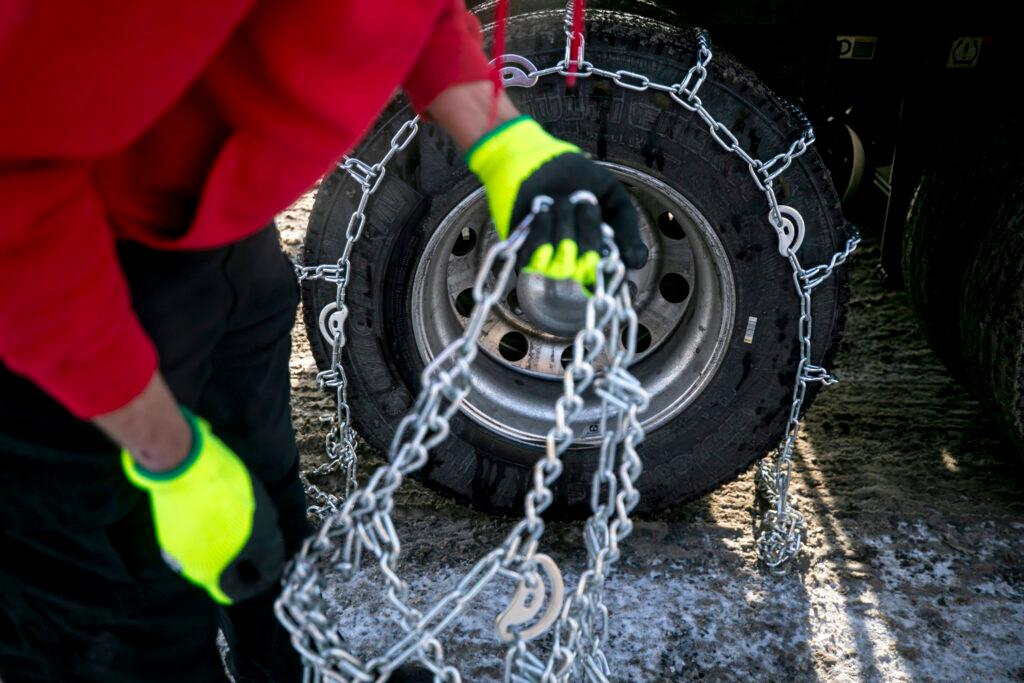
Enforcement of Colorado’s traction rules falls to a patchwork of authorities, including the Colorado Department of Transportation, the Colorado State Patrol and the private trucking companies that operate along I-70. The gaps between those groups remain a problem without a clear solution.
The state patrol did not respond when asked about the total number of chain law citations it issued to semi-drivers last year. A one-day chain check operation on Feb. 10 found 18 violations among the 268 commercial vehicles CSP inspected along eastbound I-70 near Dotsero.
The push for tougher penalties
Earlier this year, more than a dozen overturned and spun-out semi trucks caused a multi-hour delay on I-70, which caught the attention of Vail Mayor Travis Coggin. According to Coggin, gridlock on I-70 consistently has a “huge impact on the [Vail] community.”
In a town council meeting last month, Coggin told fellow council members that he wanted the state to raise the $500 fine for violating chain laws to $20,000. Officials in Clear Creek County have made similar requests — calling for higher fines for blocking roadways due to improper equipment.
Currently, the fines can cost commercial drivers $100 for not carrying traction equipment, $500 for not chaining up and $1,000 for blocking roadways as a result of not chaining up. All of those penalties also carry additional surcharges.
“Five hundred bucks clearly does not change anyone's mind,” Coggin said. “...So I threw out $20,000 just because it's a big number. I'm not saying that's the right number, but what we have currently clearly isn't a deterrent and it's something we need to address for the safety of our community and just for interstate commerce and traffic and quality of life.”
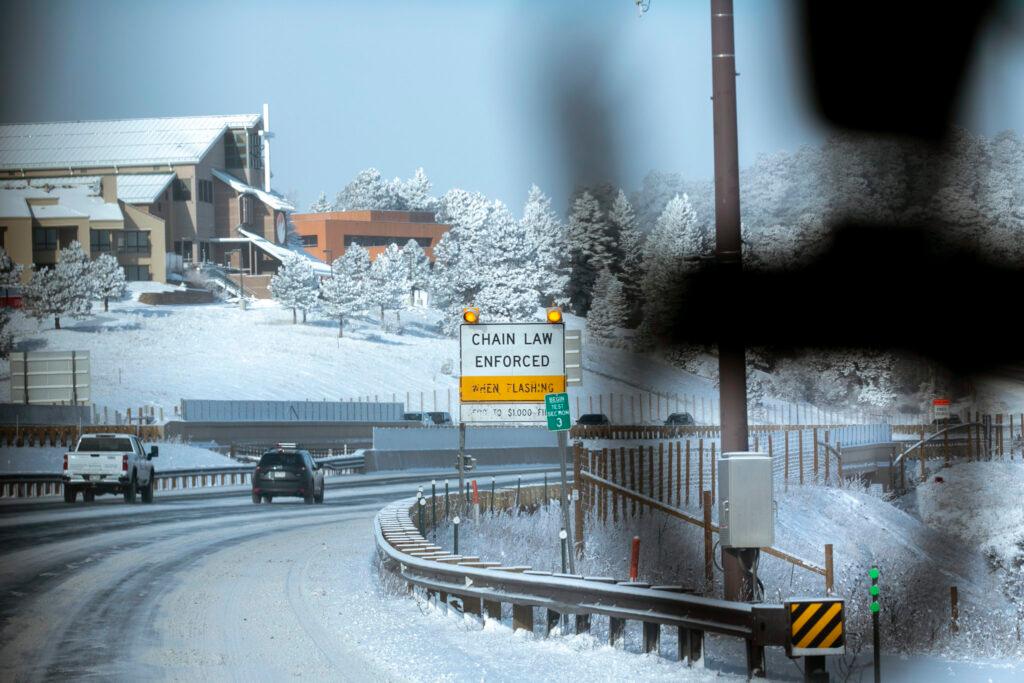
Prior to last year, state law only required commercial semi-trucks drivers like Lee to carry tire chains when traveling on I-70.
Now, it requires all drivers to carry traction equipment — such as having chains or using tires rated as all-weather, all-season or for mud and snow (all of which are legal if they have a tread depth of at least 3/16”) — from September through May. Passenger vehicles face a $50 fine for non-compliance, plus a $17 surcharge — a much lower penalty than CMV drivers.
Prevention continues to be a work in progress.
Colorado State Patrol announced last Wednesday that it will start doing proactive chain checks along I-70, between Glenwood Springs and Golden, to ensure commercial truck drivers have chains with them. However, those checks will only occur once a week.
While state patrol did not confirm or deny whether frustration from local communities influenced its decision, Trooper Gabriel Moltrer said the agency is “trying to make sure it’s getting these CMVs in compliance before the storms hit to make sure that we're avoiding motorists being stranded and the road closings.”
The case for clearer communication
While Lee has no problem with the enforcement of chain law, something he thinks should be taken more seriously, he believes that the solution shouldn’t be higher fines. According to him, the problem has more to do with driver education.
“Some of what it is is we get people from out of state that aren't familiar with this highway or what can happen up here.” Lee said. “Some of them it's laziness. Some of them don't know how [to put chains on] or they don't even have the chains.”
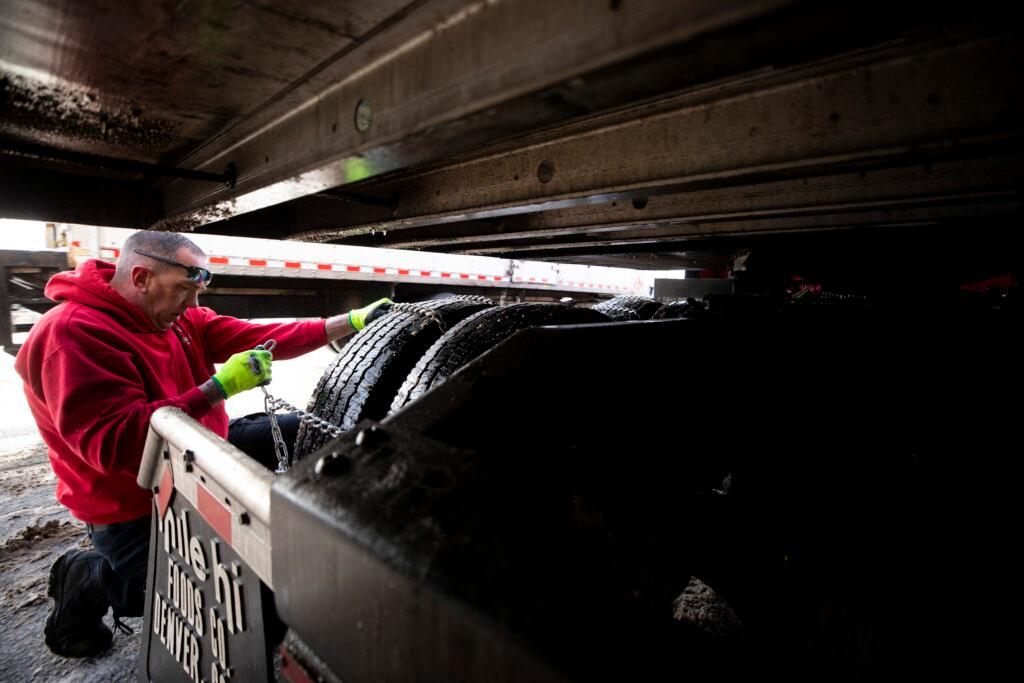
Lee has been driving trucks on mountain roads in Colorado for over two decades.
In the 60s, his grandparents started a “trucking empire” as he calls it. When he got older, he and his dad branched off to start Mile High Foods, the carrier he still operates now.
“Literally transportation runs in our blood,” Lee said. “I literally grew up in the industry working with my dad, whether it was warehousing, going places with him, Salt Lake, New Mexico, Wyoming, different places like that. So I've literally been in it in all aspects of it since I was a kid.”
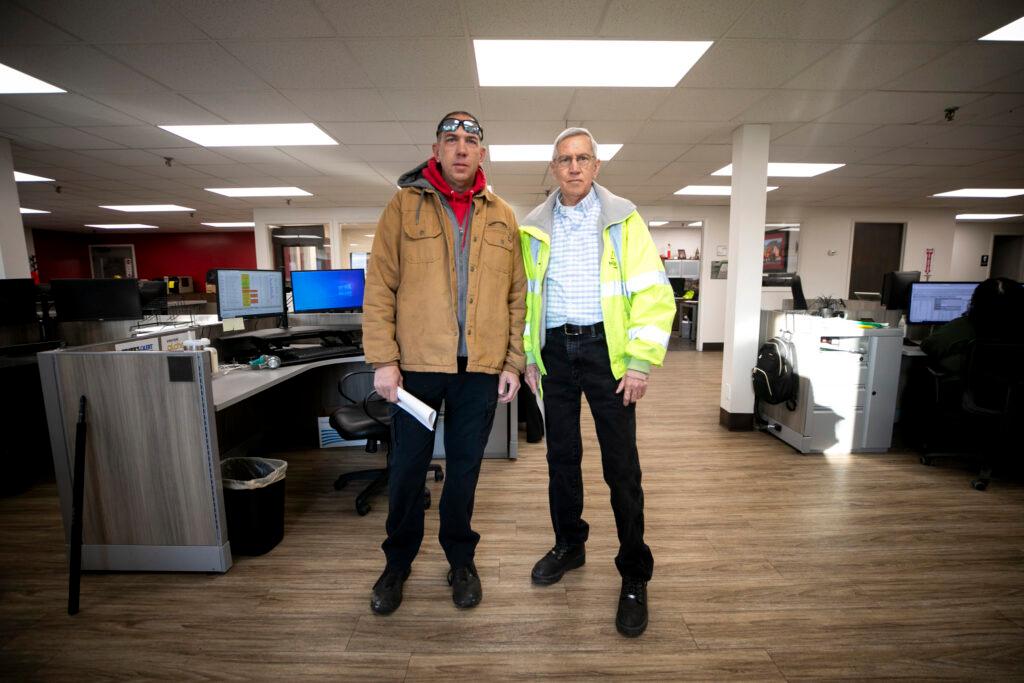
While Lee recognizes that he had an unconventional, lifelong education and introduction to driving giant, 40-ton trucks, he says that doesn’t mean other drivers shouldn’t be expected to have some level of expertise.
He says he wishes the state had more mandated training for drivers about how and when to chain up. Compared to other states with chain laws, Colorado is the one with the highest fines for violations. But according to Lee, the state is doing the “bare minimum” in the way of helping truck drivers be successful on the roads in the winter months.
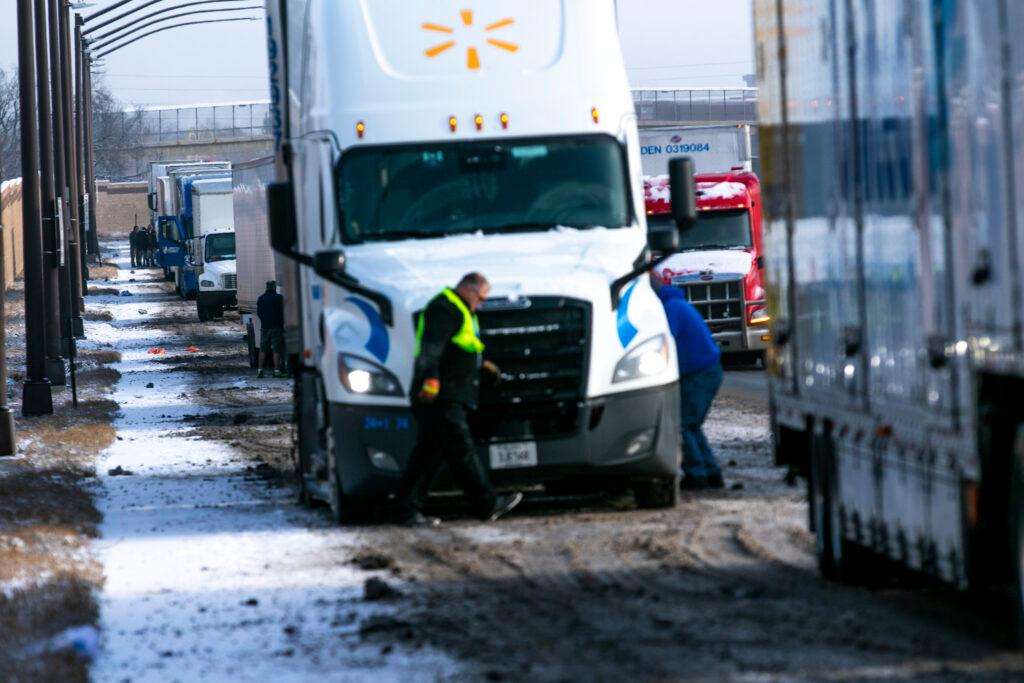
Recently, some Colorado lawmakers are trying to change that.
In February, a bipartisan group of Western Slope lawmakers proposed a bill that would allow private companies to sell and install chains along mountain highways. The proposed legislation would create a permit system — similar to already established models in states like California, Oregon and Washington.
Gaps in communication between CDOT and drivers have also been an issue. CDOT and CSP decide when to instate the chain law based on weather and road conditions. Once the alert is in place, flashing signs along the I-70 corridor light up and inform truck drivers to pull over at the nearest chain station and chain up.
Lee said, more often than not, the signs are put up too late or pop up for unclear reasons. He argues there are times when tire chains can actually make conditions more dangerous, and costly, for drivers.
“They want us to run chains on wet roads, which is not good,” Lee said while driving on I-70 from Denver to Vail Pass. Less than 100 miles into his route, a loud pop echoed through the truck cab. One of his chains had broken apart and caused some damage to his tires.
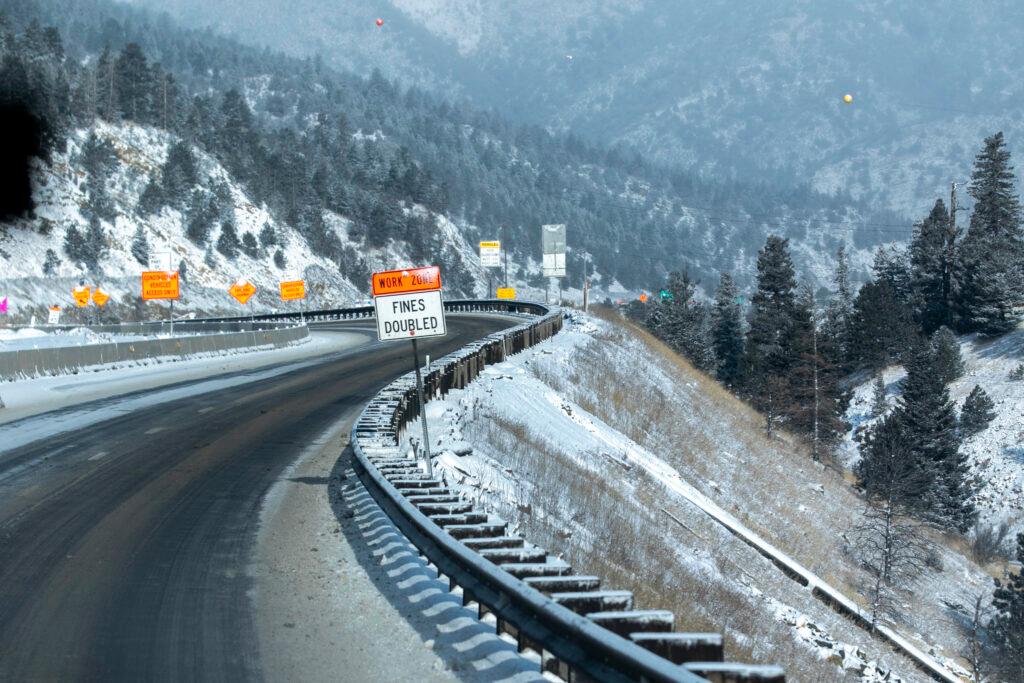
“This is what tears up our roads, this is what blows our tires. The one tire, you can see where the chains were melting into it. It was just heating up on the pavement and I'm doing 40 miles an hour out here. I've now destroyed one full set of chains, and I'm pretty sure I'm going to have at least one broken link on the other side when I pull those off,” he said. “I'm not going to run chains up here anymore because it's pavement. At this point I'm just destroying our own equipment, and it's not worth it. I'm more of a hazard than anything else.”
While the roads may be less snowy and icy as Colorado transitions into spring, the traction law will still be in place until Memorial Day, as winter driving conditions in the high country can develop well into May. All commercial vehicles, like the one Lee drives, will still be required to carry chains on mountain highways, regardless of the weather.
With recent updates to the law, passenger vehicles must also meet specific traction requirements to stay safe on unpredictable mountain roads. For more information on Colorado’s traction and chain laws, including requirements for both commercial and passenger vehicles and how to avoid fines, you can visit CDOT’s winter driving guide or Colorado State Patrol’s latest chain and traction regulations.
Editor's note: This story has been updated to clarify all the type of tires Colorado requires during chain season.

